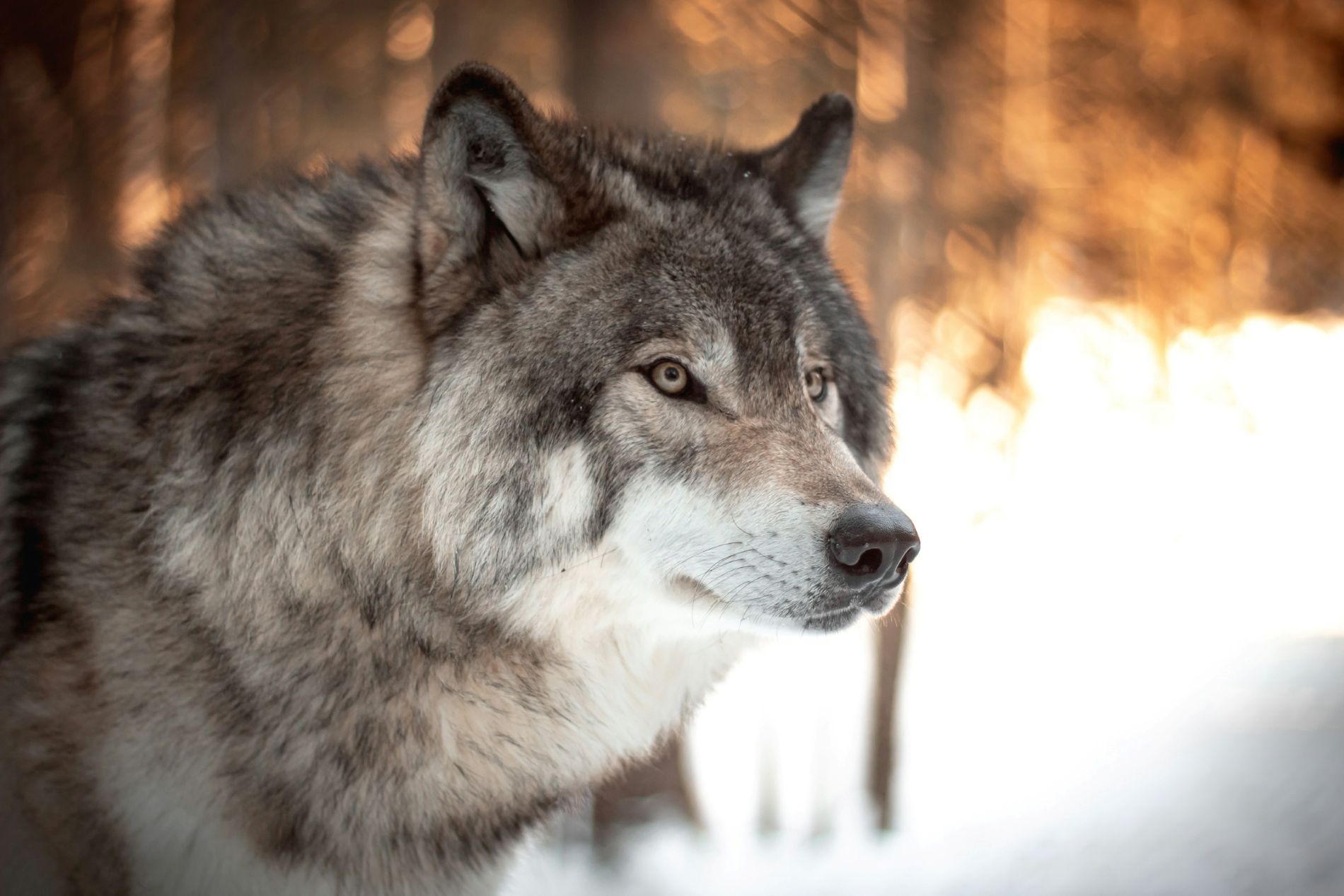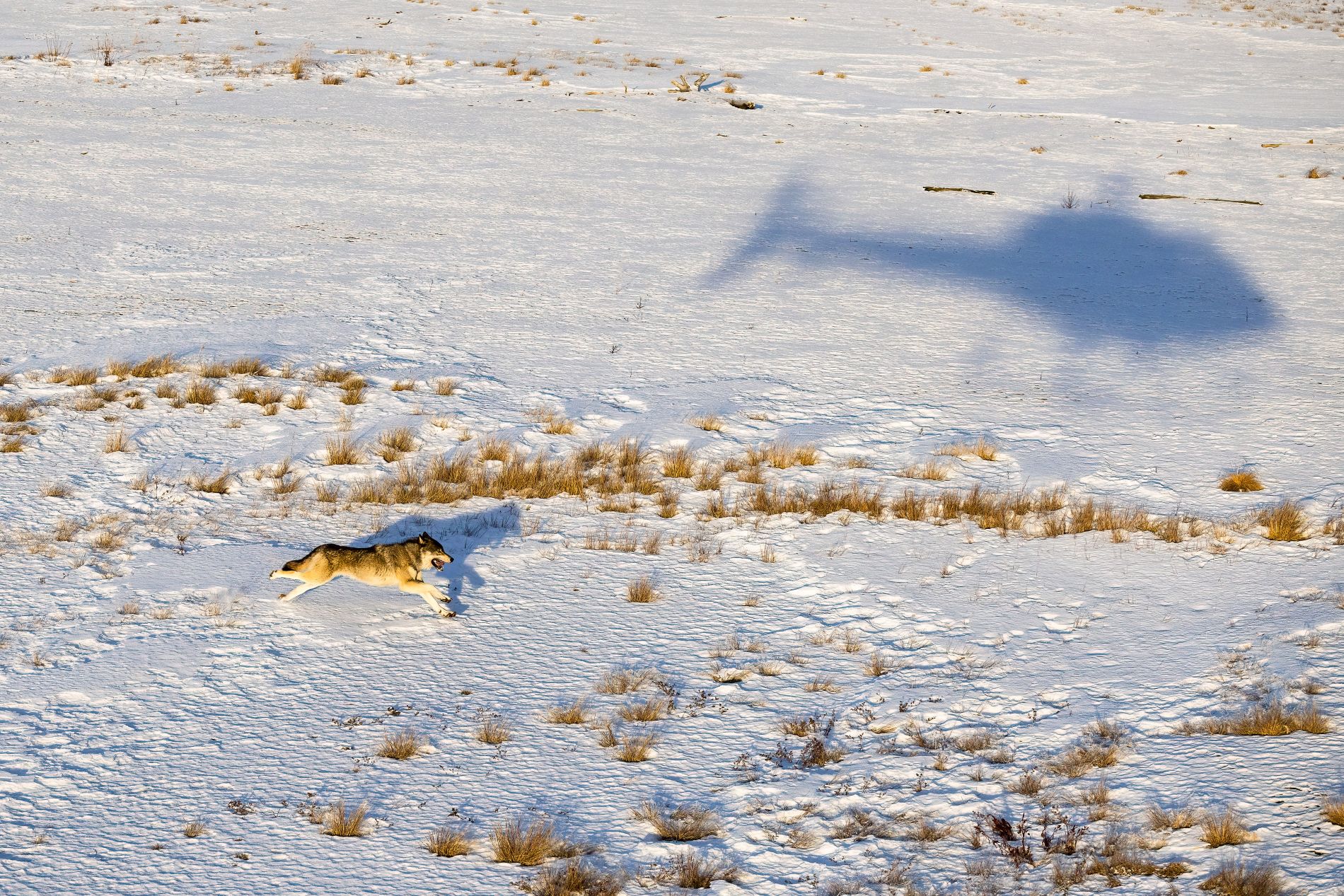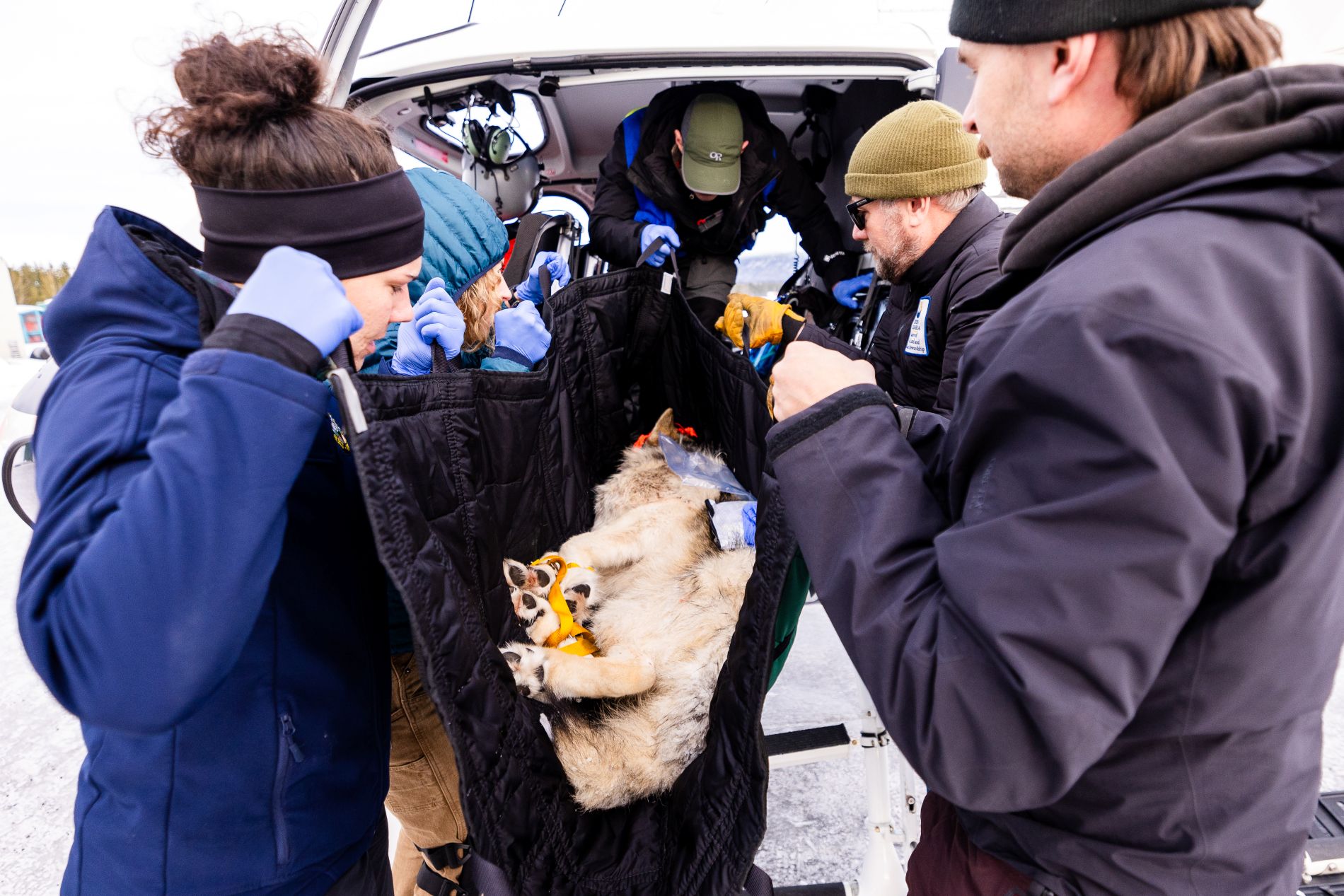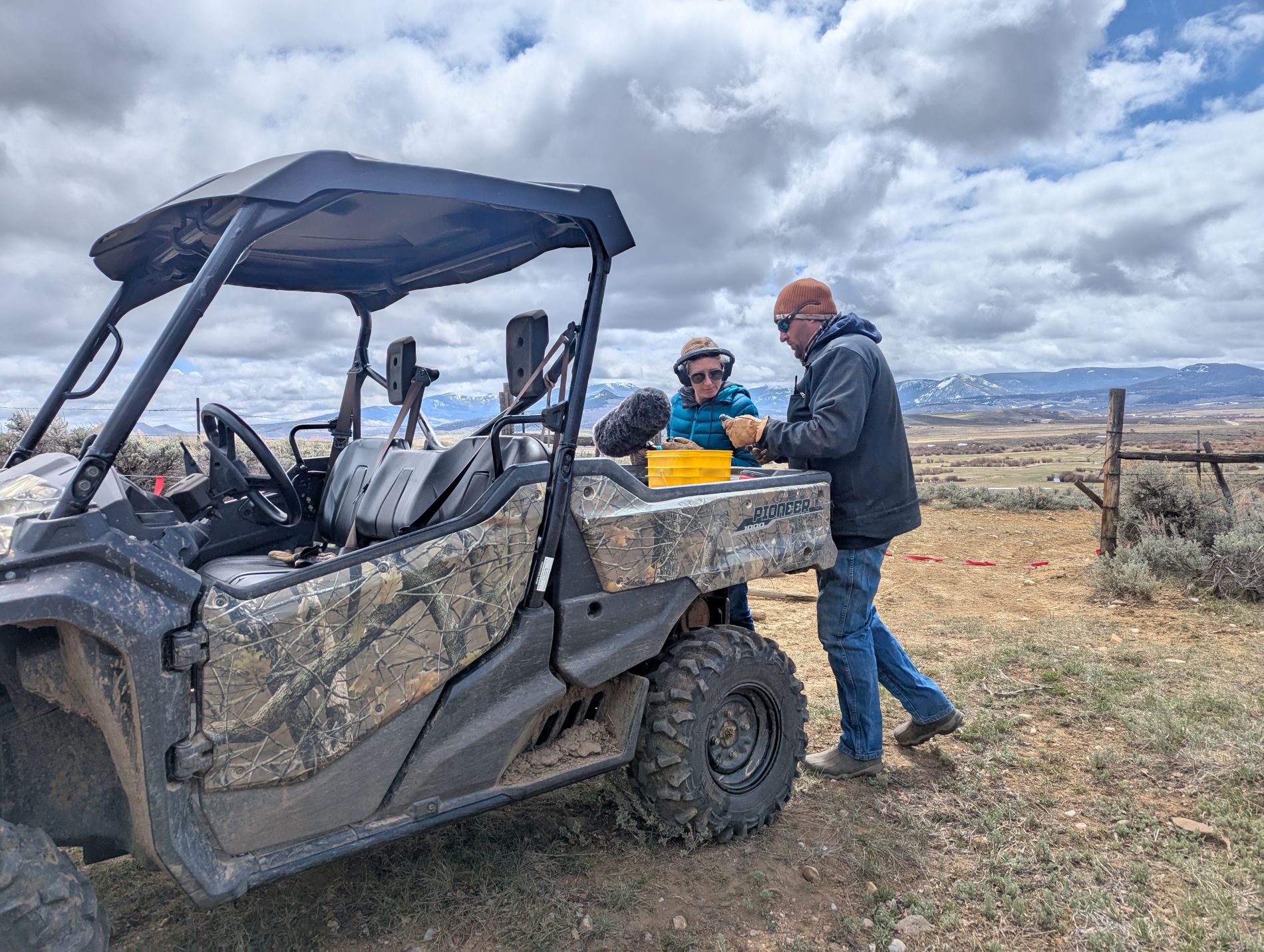CATALYST
DENVER MUSEUM OF NATURE & SCIENCE ONLINE MAGAZINE
New Laws of Notion Release!
Institute for Science & Policy Latest Podcast Season Explores Wolf Reintroduction

“Gray Territory” explores the tensions behind wolf reintroduction. (Photo/ Institute for Science & Policy)
The Institute for Science & Policy at the Denver Museum of Nature & Science has launched the latest season of its award-winning podcast Laws of Notion. The new season, titled "Gray Territory: The Return of Wolves to Colorado,” examines wolf reintroduction five years after the historic vote and explores why this remains a complex and polarizing issue.
In the five-part series, listeners will travel from the Front Range to the Western Slope as Colorado navigates one of the most significant wildlife conservation efforts in recent history. Through the voices of ranchers, conservationists, scientists, wolf advocates, government officials and wildlife managers, the series uncovers the deeper story of how humans and predators might coexist in the modern world.
“This is a story about the return of gray wolves to Colorado but also something bigger,” says Institute Executive Director Kristan Uhlenbrock. “Through a tapestry of rich stories and lived experiences, we tried to weave together the complexity of values, democracy, conflict, and living with uncertainty. And give the listener a chance to move past the simplistic narratives and see each perspective from a new angle.”

A wolf runs across snow-covered terrain in British Columbia, in January 2025. (Photo/ Colorado Parks and Wildlife)
Beyond the headlines and politics
The 2020 wolf vote was closer than any other ballot measure that year: 50.91% yes, 49.09% no. By a razor-thin margin, Colorado became the first state to intentionally bring back wolves by popular vote. Colorado Parks and Wildlife spent three years putting together a plan built on community and stakeholder input, compromise and adaptive management, and in December 2023, 10 wolves were released on the Western Slope. Now that paws are on the ground, the real work is just beginning.
For some, wolves returning to the landscape feels like tightening the vice on the already challenging and slim-margin profession of ranching. Yet for others, wolves mean the restoration of an ecosystem that humans deliberately interfered with when the United States government launched a major effort to eradicate wolves in the late 1800’s and early 1900’s.
It may be easy to reduce this to a simple story as us-versus-them narratives monopolize headlines. Urban vs rural. Pro-wolf vs anti-wolf. The frustrations and tensions are real, but throughout the series, you’ll hear from people working through the day-to-day realities of learning to live with wolves and creating solutions to make coexistence possible.

Colorado Parks and Wildlife staff unload a gray wolf from a helicopter in British Columbia, Canada, in January 2025. (Photo/ Colorado Parks and Wildlife)
This story is about more than wolves
One of the central themes of the series is examining how the diversity of society’s values and perspectives gets incorporated into wildlife management. The ongoing debate encompasses larger social values — rural livelihoods, environmental change, public land access, changing values around wildlife and conservation, and who gets to make decisions about the landscapes we share. Like all seasons of the Laws of Notion podcast, “Gray Territory” is about navigating what comes next when there is no simple answer and rebuilding trust to move beyond conflict and create a path forward.

Podcast host Kristan Uhlenbrock spoke with ranchers learning to live with wolves. (Photo/ Institute for Science & Policy)
The Institute’s Story and Work
The Institute for Science & Policy is a pillar of the Denver Museum of Nature & Science’s commitment to deepening public understanding of some of society’s biggest challenges with scientific thinking and empathy. Established in 2018 by Museum CEO George Sparks, it combines scientific information with public education and thoughtful dialogue to help solve our most complex science-related policy issues in Colorado and beyond.
As a non-partisan and policy-neutral organization, the Institute serves as both a convener and an honest broker of information, while using storytelling as a key component to explore the interconnections between science, policy and our human nature.
For more information and to listen to the podcast, visit the Institute for Science & Policy’s webpage.
Winter 2025
In This Edition
-
Celebrating 30 Years of Prehistoric Journey
The Exhibition You Grew Up with Is Still Full of New Discoveries
-
Surprising Symbiosis: Nature’s Unexpected Partnerships
Discover 5 Incredible Ways that Animals Coexist — Recreated with LEGO® Bricks
-
Museum Scientists Discover Oldest Snapping Turtle Ever Found
This Ancient Species of Snapping Turtle Lived Just After the Dinosaurs Went Extinct
-
Fueling Discovery: The Power of Individual Support and Federal Grants
The Behind-the-Scenes Support that Helps Make What We Do Possible
-
New Laws of Notion Release!
Institute for Science & Policy Latest Podcast Season Explores Wolf Reintroduction
Share this:
